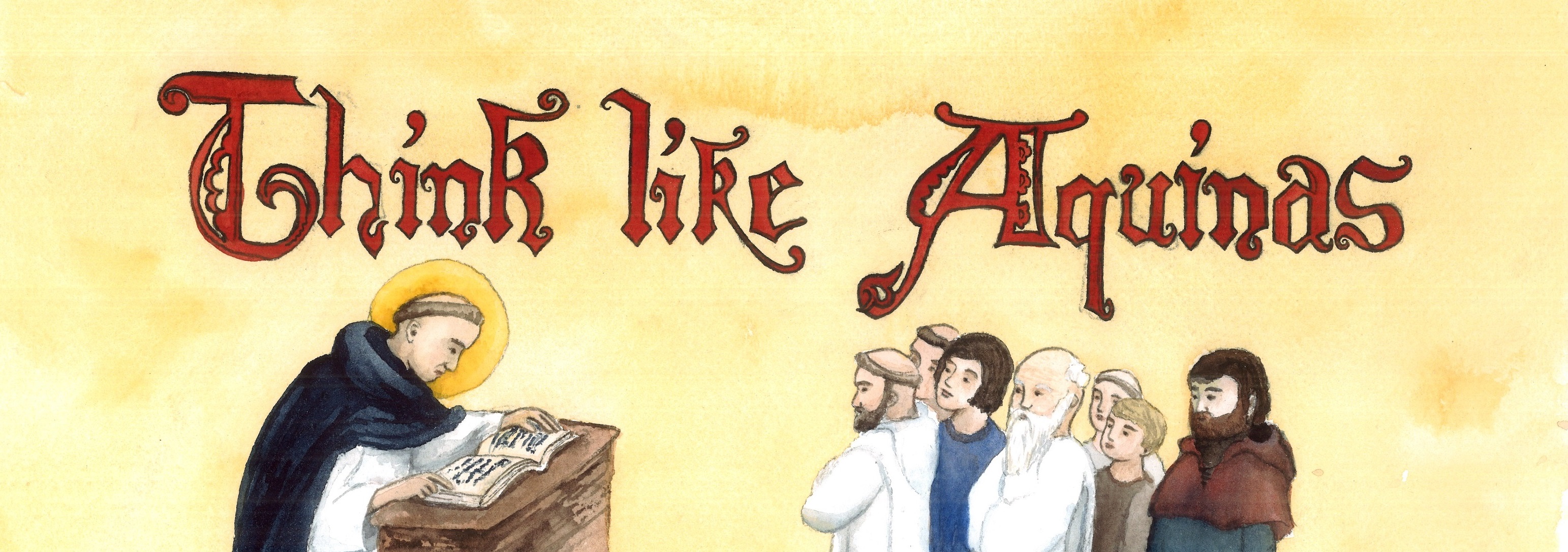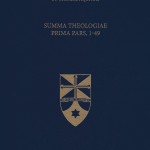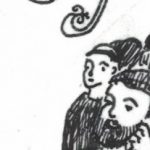The first Article of the first Question of the first Part of the Summa opens with a doubt. Maybe the whole project of theology is arrogant; perhaps piety should keep our eyes cast down on earthly things. We should not presume to scale the heights of heaven with our minds.
The objection reminds one of the pilgrim Dante’s doubt in Canto 2 of the Inferno. Just as he and Virgil are setting out on a journey down through hell, up through purgatory, and ultimately to the heights of heaven, Dante begins to question himself. Aeneas is said to have gone down to hell while still alive, but am I really an Aeneas? St. Paul is said to have journeyed up to heaven before death, but I am certainly no Paul. Maybe this journey is presumptuous; maybe this whole pilgrimage is arrogant.
But Virgil exposes the real nature of Dante’s hesitation: “If I understand your words aright, your soul has been bruised by cowardice.” Reverence for God is not what holds Dante back, but rather fear of what the road will require. Virgil goes on to reveal that in fact Dante has been summoned to this journey by Beatrice, St. Lucy, and the Virgin Mary herself: his fear is a fear of responding to a divine calling.
St. Thomas acts as Virgil to the pilgrim in Objection 1. The body of Article 1 has two parts, each part corresponding to one of the objections. In the first part of the body, he explains that God himself has called us to a destination above our nature, and we have to know our destination if we are to direct our thoughts and actions toward it. Refusing theology is not reverence but a spurning of God’s call. St. Thomas drives the point home in his reply to the first objection: Once God has spoken, the only proper response is belief.
The second objection disagrees sharply with the first. While the first objection urged that we should fear what exceeds reason, the second objection argues that nothing in fact exceeds reason. The first objection says reason is too low for theology; the second boasts that reason is too high. Every possible kind of thing is already studied in one or another area of philosophy, so we don’t need anything else, thank you very much.
If the first objector is the pilgrim Dante from Canto 2 of the Inferno, the second objector is Ulysses from Canto 26. He sailed his ship past the Straights of Gibraltar, past the warning signs put up by Hercules to prevent men from venturing beyond the bounds of human reason and into the divine unknown. He sailed his ship so far, in fact, that he came near to the mountain of Purgatory before a God-sent storm capsized the boat and killed Ulysses with all his men. Dante was too fearful to journey toward Mount Purgatory; Ulysses was too bold to hold back.
In the second part of the body of Article 1, St. Thomas brings our second objector back to reality. As a matter of historical fact, he points out, even those things about God that can be known by reason have been known by very few people, and that only after a long time and with lots of mistakes. Mankind was around a long time before Plato and Aristotle, and even those great men were wrong about many important things, and only a trickle of disciples followed their path afterwards. Human reason is not so great after all—not even in its own domain. The reply to Objection 1 emphasizes that, even where reason both can and does attain to knowledge of God, it just isn’t doing the same kind of thing as revealed theology, because there is in fact a light higher than reason: the divine light.
The two objectors between them represent every possible objection to theology: the arguments may look different in different contexts, but they will always say either that reason is too low or that reason is too high for theology to be useful.
The story of Ulysses has an interesting side note. After he transgressed the lawful boundaries of reason and before he suffered his inevitable shipwreck of soul, Ulysses did in fact see things no one else had seen: significantly, he saw new constellations, parts of the heavens themselves that no one before had beheld in this life. The temptation to stride boldly over the lines of piety is a real temptation because one really does discover new things. Treating corpses with less reverence really did bring new medical knowledge before it taught us to view our own bodies as machines; Nietzsche really did see through the philosophy of his time before he went mad. And yet those new constellations Ulysses saw, we later learn, were in the very heavens from which Satan fell.
Even as theology responds to God’s own summons, the dilemma of the first two objections will remain with us: Do I refuse to investigate this theological question because I revere tradition or because I am timid, like the pilgrim Dante? Am I brave enough to inquire because I am free in Christ or because I am presumptuous, like the explorer Ulysses?






Please note: I reserve the right to delete comments that are offensive or off-topic.